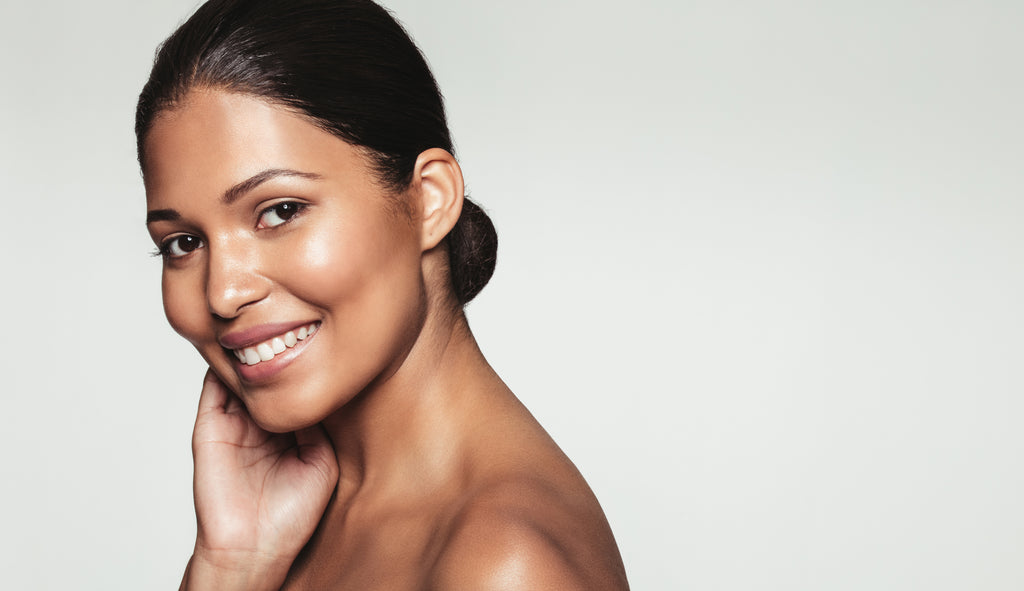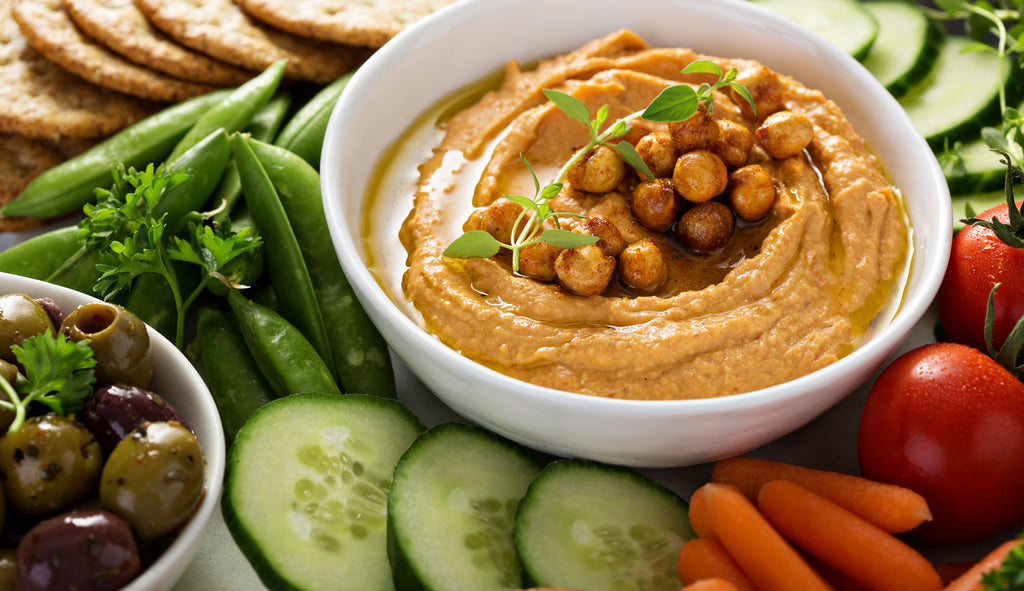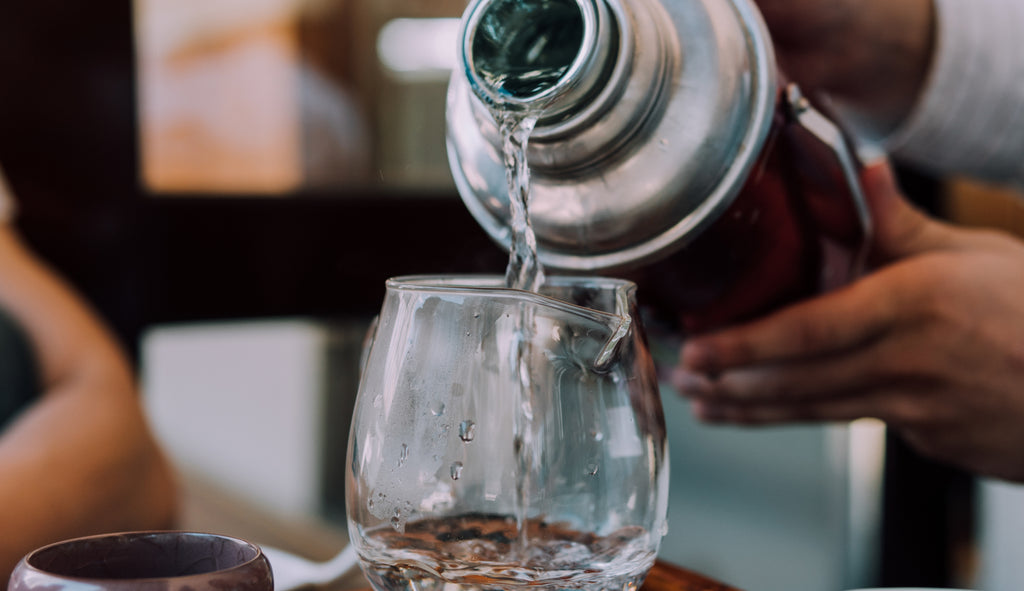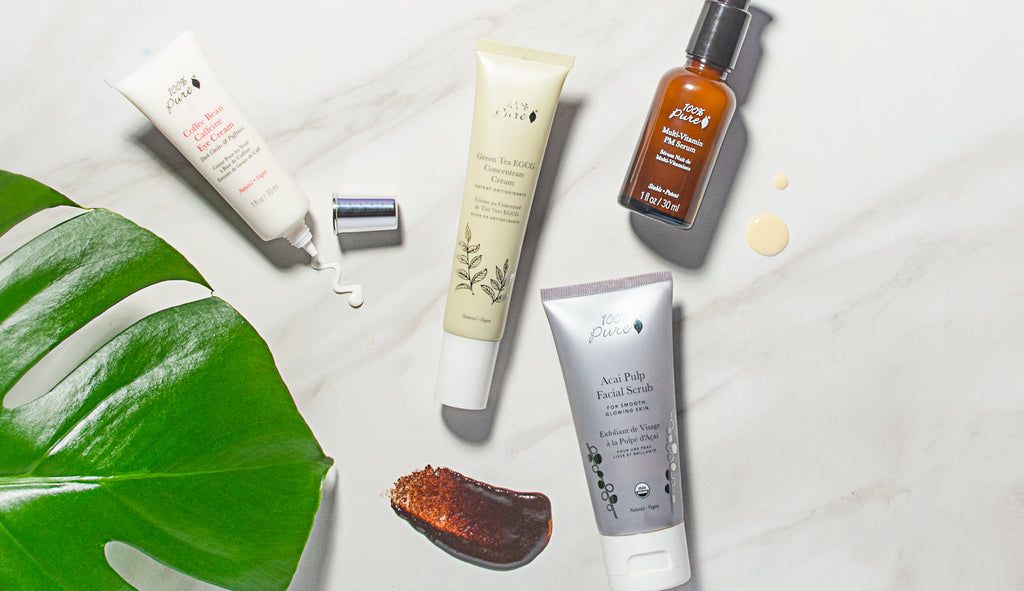These components can pave your path to healthier, happier skin
Written by: 100% PURE®
We believe that the skin care products you use should be a key component of your approach to achieving healthy skin - but not the only tool in your arsenal. Buying thoughtfully-formulated products that feature plant ingredients rather than harmful, artificial chemicals is a great first step toward taking conscious care of your skin. However, other lifestyle factors such as your diet, sleep cycle, and exercise routine can have an enormous impact on the health of your skin tissue - meaning they should all be addressed if you expect your skin to look glowy and fresh!
 Balanced Diets and Skin Health
Balanced Diets and Skin Health
In order to maintain healthy skin, it’s crucial to eat right and stay hydrated. Healthy foods provide your body with the building blocks it needs to heal wounds, maintain elasticity and vibrance, and balance the bacteria in your skin. Dermatologists recommend you eat plenty of leafy, green vegetables, and get a variety of fruits and vegetables each day. You should also make sure to pack in the healthy, fatty acids from a variety of sources.
Inflammation is thought to be a key culprit behind skin aging, and can also worsen the symptoms of acne and other skin conditions. To control inflammation throughout your body, you could try switching to a dermatologist-approved anti-inflammatory diet, or at least make it a point to avoid inflammatory foods, and seek out anti-inflammatory foods instead. While these diets include non-vegan foods, it’s easy to pare down and get creative, in order to customize it for a vegan diet.
It’s also important to note that food allergies and sensitivities can manifest themselves on your skin. If you’re experiencing unusual breakouts that you think might be caused by something you’re eating, you should consider keeping a diary of what you eat, and when your breakouts occur. This can help you quickly figure out what’s causing the problem, and how to cut back. Some breakout-guilty foods are: white sugar, fast / fried food, dairy, and milk chocolate. We also recommend speaking to a professional dermatologist or nutritionist to get to the bottom of your breakout, and help you find the best diet for your system.
Exercise can reduce inflammation throughout your body, promote circulation, and potentially help to maintain the health of your telomeres, literally keeping your body more youthful at the cellular level. You should aim to get at least 15 minutes of intense physical activity per day, or 30 minutes of moderate physical activity. Getting the right amount of exercise also promotes lymphatic drainage, your body’s natural process of flushing out toxins.
Skipping out on a good night’s sleep is one of the worst things we can do to our skin. When you don’t get enough sleep, your body produces larger quantities of the stress hormone cortisol - which triggers inflammation throughout your body, resulting in inflammation and skin damage. As inflammation takes hold, your body starts to produce less collagen and hyaluronic acid, resulting in a loss of brightness, smoothness, and suppleness. Your body also takes care of important processes like balancing hydration as you sleep, so missing out on sleep will deprive your body of the chance to keep your skin’s moisture properly regulated.
 Stress Management
Stress Management
As most of us know, this factor and the one above are often the most difficult to maintain. As we discussed, the stress hormone cortisol can contribute to skin damage and aging (not to mention internal and mental health) in several ways. This makes it extremely important to your manage stress in a healthy way! While there are many stress management techniques out there, the best option is whichever one works best for you! Some of our favorite stress management techniques include exercise, crafting, journaling, and just relaxing with friends. To learn more about stress management, check out our blog on how to relieve stress in 4 easy steps!
Most of your vitamins for skin should come from your diet, as your body can process vitamins from food more efficiently than vitamins from supplements. However, vitamin C supplements can go a long way toward skin health, and are generally considered safe for most consumers. If you have a vitamin B, A, or E deficiency, you may want to consult your doctor about supplementation (although these vitamins are not generally considered safe for self-administration). Other supplements, like magnesium and phosphate, can make a big difference for skin health in individuals who are prone to deficiencies. Remember: you should always consult your doctor before beginning any course of supplement use - especially if pregnant or breastfeeding.
We’ve all heard this before, but it’s important to protect your skin with sunscreen every single day, in order to prevent skin damage caused by UV radiation. Over time, your body produces free radicals in response to UV exposure. These rogue electrons can cause irreversible damage throughout your skin tissue, leading to wrinkles and fine lines, dark spots, and the loss of suppleness and elasticity.
Most dermatologists recommend that you cleanse your skin once in the morning and once in the evening, and additionally after exercising or sweating heavily. There’s no need to use harsh chemicals such as denatured alcohols in order to cleanse your skin, though: A gentle, natural cleanser like our Blood Orange Cleansing Balm can get the job done perfectly without compromising your skin health. In the evening, it’s especially important that you remove any makeup and sunscreen from the day in order to prevent clogged pores. If you prefer to practice the Korean double-cleansing routine, start with a water-based cleanser like our detoxifying Charcoal Clay Cleanser, followed by an oil-based cleanser like our Coconut Oil Cleansing Milk or Blood Orange Cleansing Balm.
 Moisturization Vs. Hydration
Moisturization Vs. Hydration
“Moisturization” and “hydration” are often used interchangeably, but there’s an important difference between these two concepts. “Hydration” literally refers to hydrating, or delivering water to, the cells in your skin. In contrast, “moisturization” refers to reinforcing your skin’s lipid barrier with oils and other nourishing ingredients. Moisturizing your skin helps to keep hydration locked in, so it’s important that you get a combination of hydration and moisturization in your skin care routine. Still wondering how to use both for a healthy skin routine? Read more about the critical balance between moisture and hydration, and how it can help your skin achieve a more youthful, supple glow.
PRO TIP: Staying hydrated can work wonders for a clearer, more supple complexion. Ample hydration through regular water intake throughout the day will greatly increase skin’s health and glow.
 Clean, Organic, and Natural Skin Care
Clean, Organic, and Natural Skin Care
We’re diehard believers that clean, organic, and natural skin care is the best way to topically maintain the health of your skin. Using key ingredients from plants, seeds, fruits, and herbs, clean formulas will be unhindered by artificial ingredients and fillers that can reduce potency and benefits for your skin. By seeking out natural products that are free of parabens, artificial fragrances, and other harsh ingredients, you’ll ensure that you’re taking care of your skin at the cellular level, and supporting its long-term health.
- Tags: December-2018, Skin Care, skincare
We carefully hand-select products based on strict purity standards, and only recommend products we feel meet this criteria. 100% PURE™ may earn a small commission for products purchased through affiliate links.
The information in this article is for educational use, and not intended to substitute professional medical advice, diagnosis, or treatment and should not be used as such.

